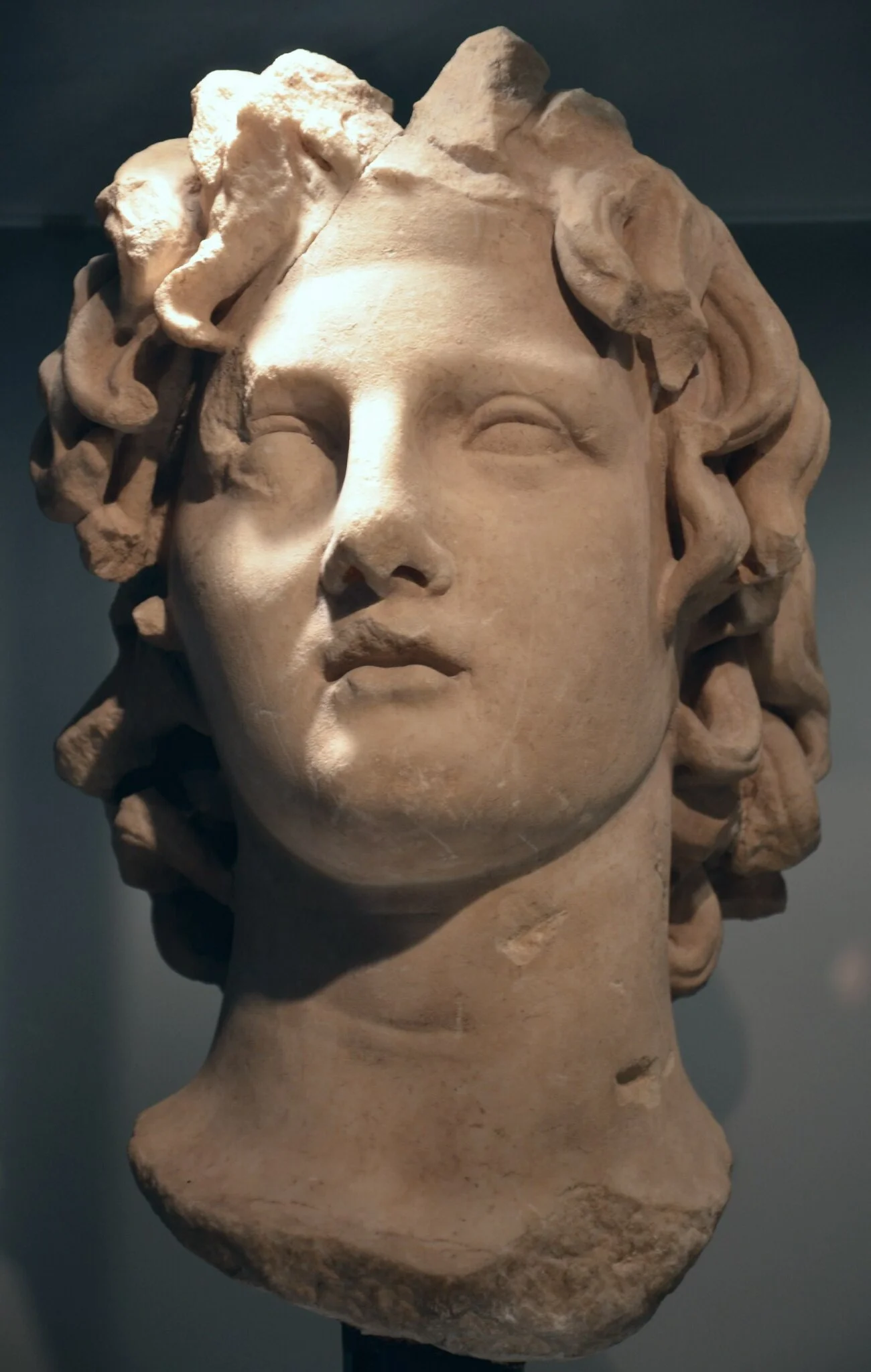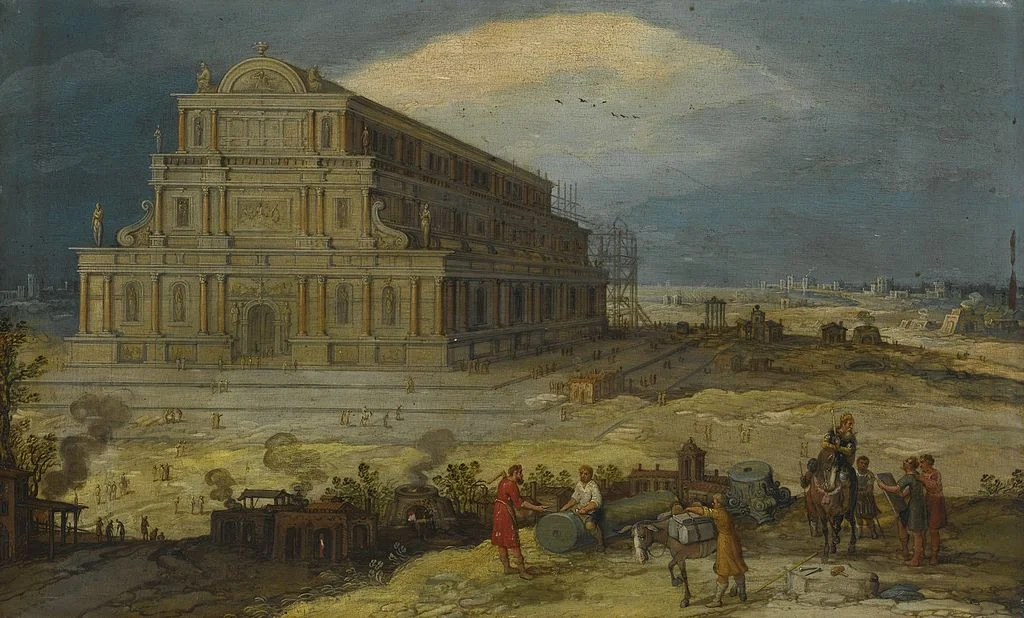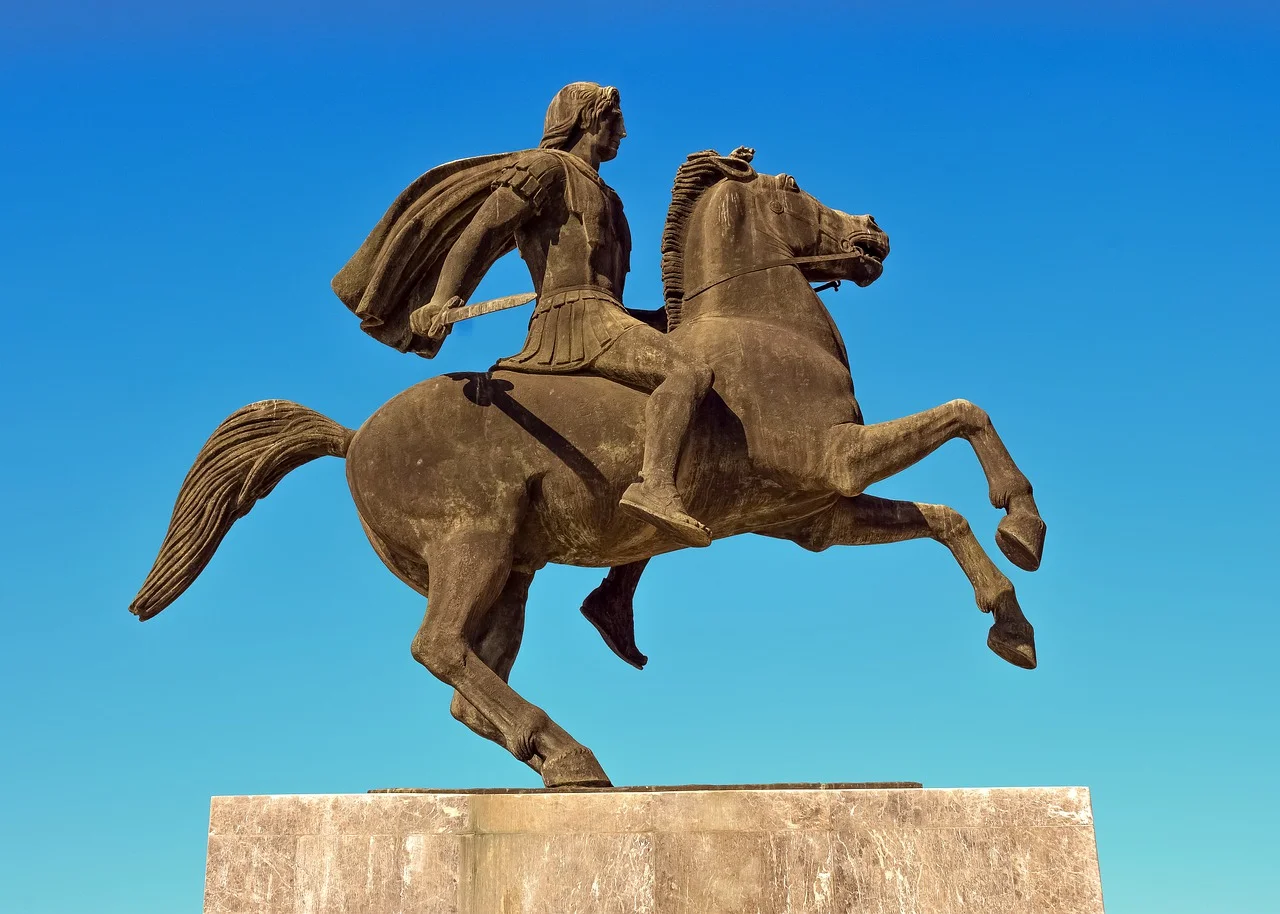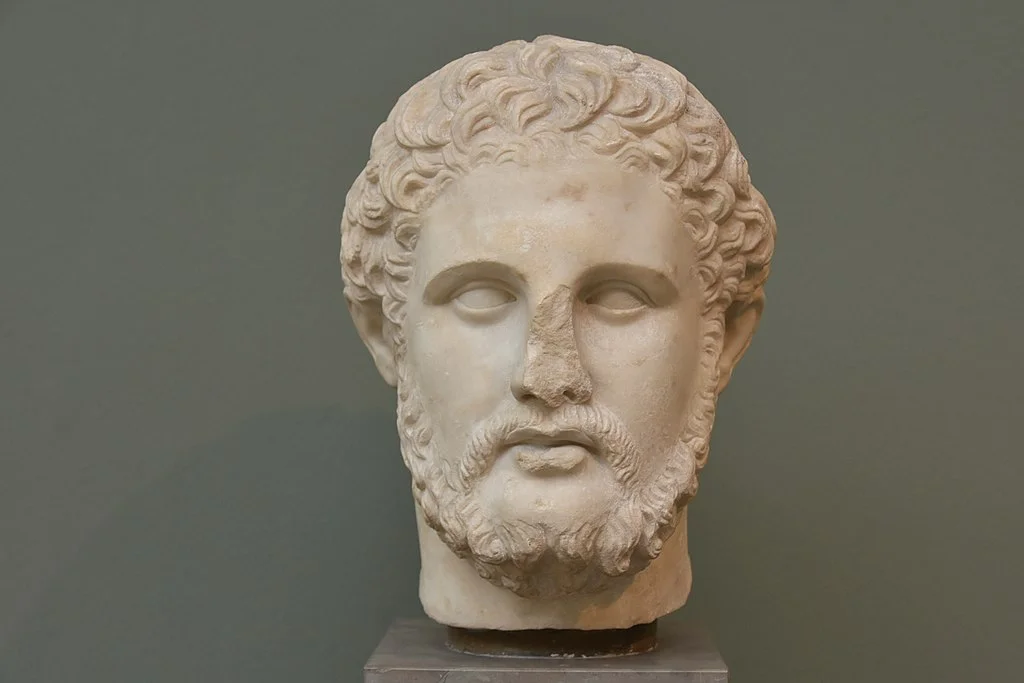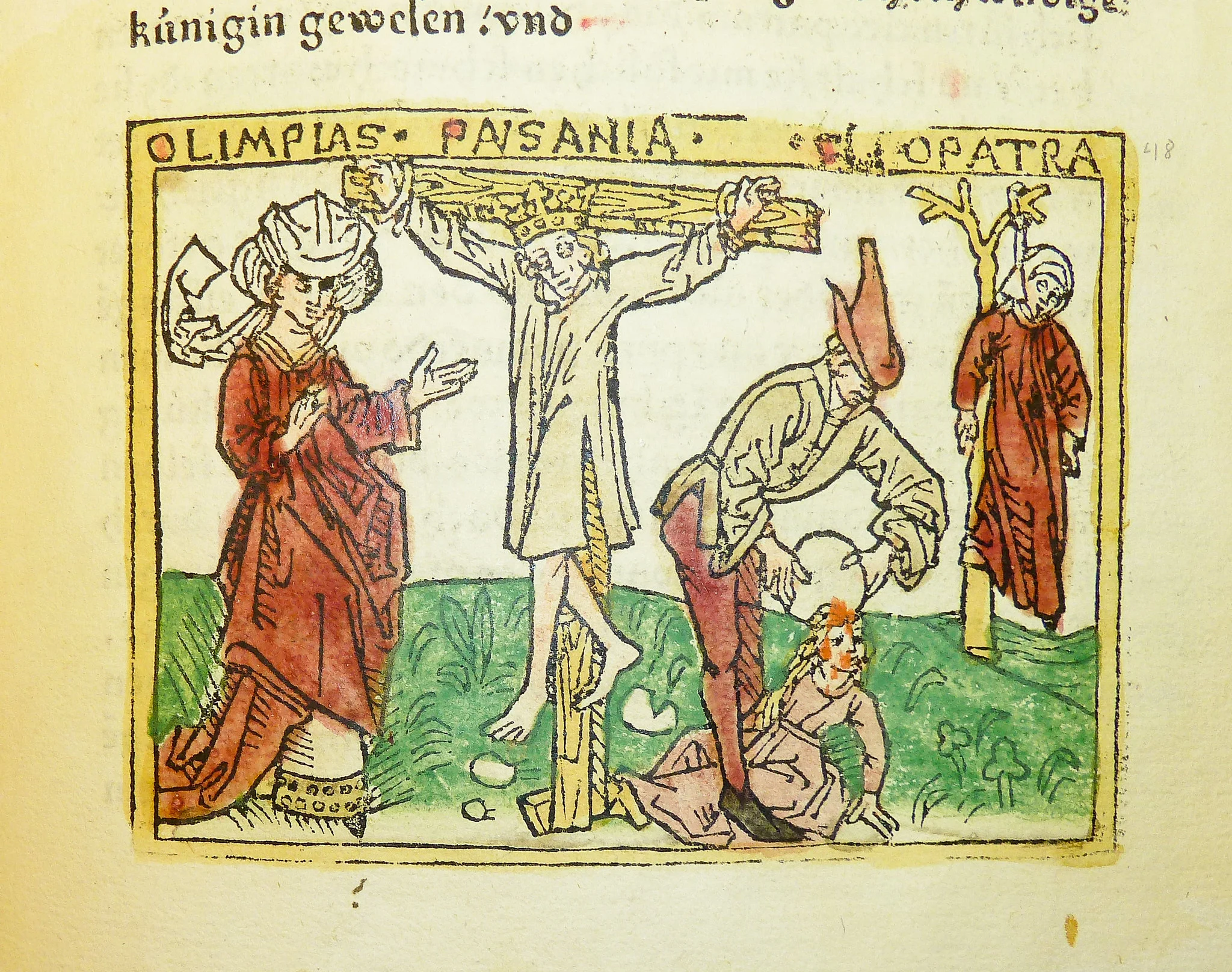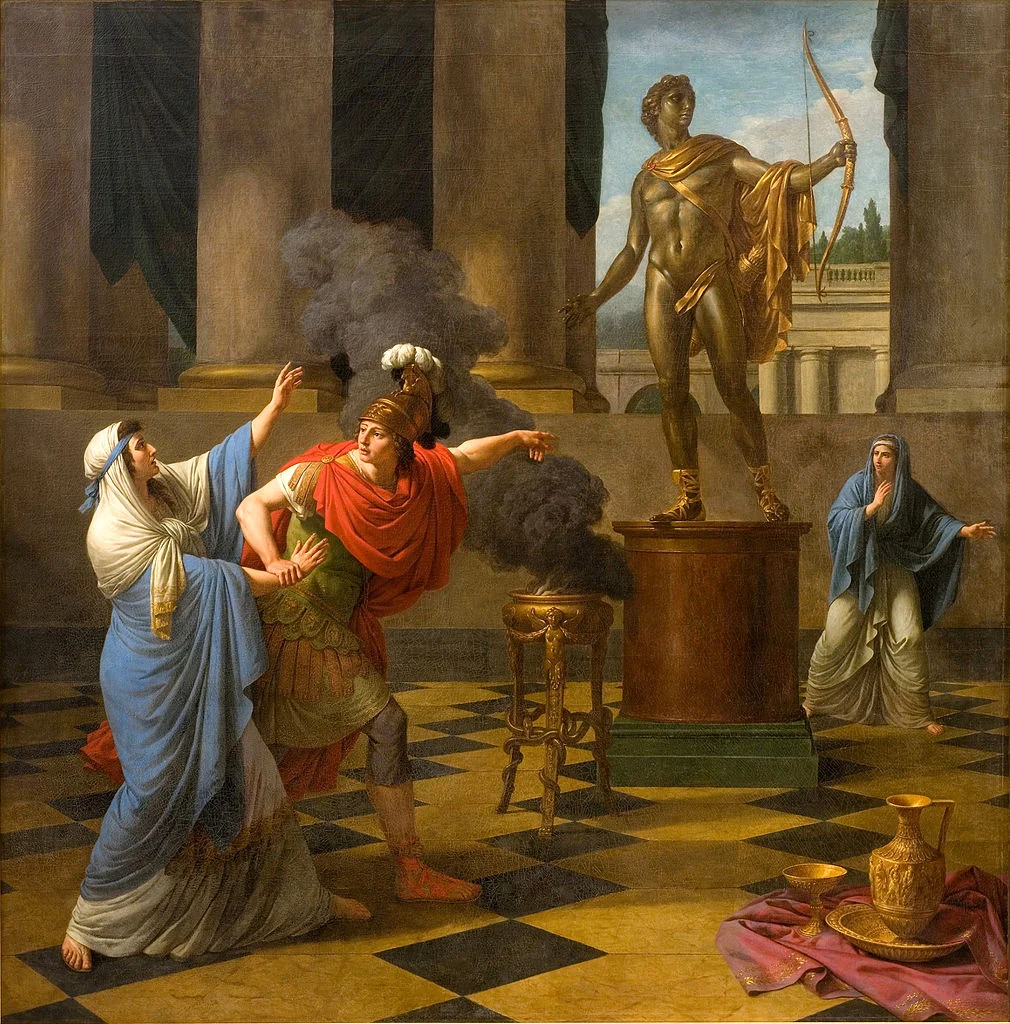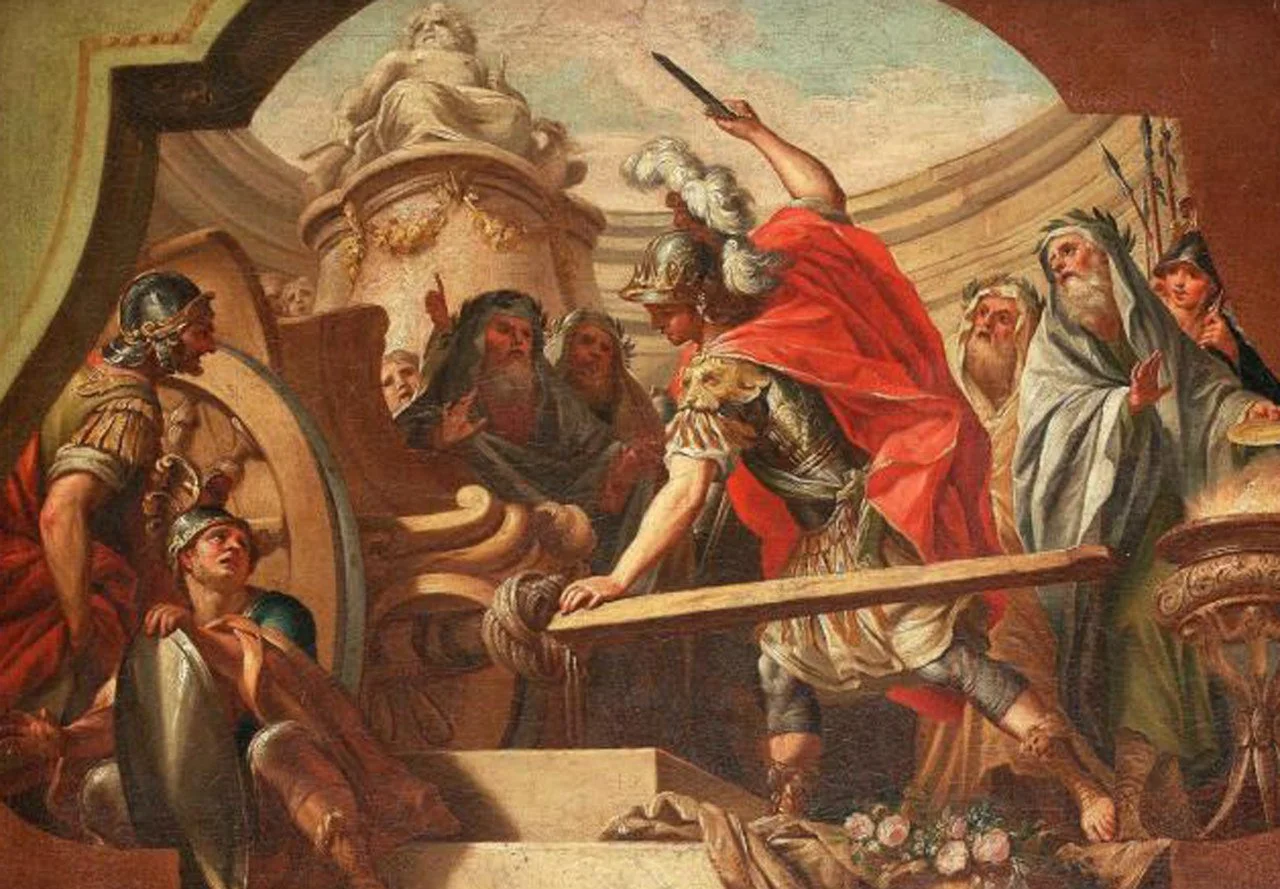Young, bisexual, clever and brave: How this military genius was supposedly responsible for the destruction of one of the Seven Wonders of the Ancient World, solved the Gordian knot, succeeded King Philip II of Macedon and almost died in his first battle against the Persian Empire.
This young man accomplished so much in his short time on Earth
Only the chosen few historical figures merit an epithet. But no one should begrudge Alexander being called the Great. In fact, “Great” doesn’t seem to do this military genius justice.
I recently cruised through Philip Freeman’s highly entertaining history book, Alexander the Great. It helps that this ancient conqueror’s life, which was all too short, was nonetheless packed with dramatic moments. That’s not to diminish the author’s talent, though. Alexander the Great is as close to a novel as any history book could be.
“Attalus proceeded to rape Pausanias, and then invited all of his guests to do likewise.
After they were done, he was brought to the stables for the mule drivers, the lowliest of servants, to have their way with the unconscious young man as well.”
Here are eight surprising stories I learned about Alexander the Great’s early life.
What woman could resist seduction by Zeus, this sexy beast — even in the form of a lightning bolt? Certainly not Alexander’s mom!
1. His mother claimed he was the son of Zeus.
Alexander’s mother, Olympias, an intense woman who wasn’t afraid to fight for what she wanted, told him that he was wasn’t actually the son of King Philip II of Macedonia. Instead, he was the offspring of the king of the gods, Zeus, who seduced her in the form of a lightning bolt. How shocking! This revelation surely spurred on her son’s hubris as he set off with the humble goal of conquering the world.
Alexander, who was born in 356 BCE, had been brought up believing he had divine ancestors on both sides: His mother was said to have been a relative of Achilles, the son of Thetis the nereid, a minor goddess of the sea. And his father Philip could trace his lineage back to Herakles (better known to us by his Roman name, Hercules), a demigod who was also the son of Zeus.
The Building of the Temple of Artemis at Ephesus by Hendrik van Cleve III. Do we have Alexander the Great to blame for its loss?
2. His birth became part of a legend about the destruction of one of the Seven Wonders of the Ancient World.
Helping lend import to the birth of this astounding conqueror was a story that spread, claiming he was the cause of the complete annihilation of the Temple of Artemis at Ephesus. The goddess, you see, was out of town, attending Alexander’s birth, distracted while her temple burned to the ground.
“The Persian priests known as Magi who were resident in Ephesus reportedly ran madly about the ruins of the temple beating their faces and declaring that one who would bring calamity on Asia had been born that day,” Freeman says. “Other writers more soberly pointed out that the highly flammable temple had been burned down repeatedly in the past and on this occasion had been set ablaze by a mentally disturbed man.”
Never let the truth get in the way of some good propaganda.
Alexander the Great much preferred battles to the bedroom
3. Alexander didn’t like sex or sleeping.
I’ve always thought of Alexander the Great as a gay superhero of sorts, but he had sexual relations with both males and females. He had three sons from various women, though he did seem to prefer boys, even from an early age. In fact, his overbearing mother, Olympias, was worried about his lack of interest in the ladies and went so far as to hire the hottest prostitute around, a Thracian beauty named Callixeina, to seduce her son. It didn’t work.
“It seems that the unrestrained passion and subsequent weariness of lovemaking deeply troubled the young man,” Freeman writes. “As Alexander would confess years later, sex and sleep more than anything else reminded him that he was mortal.”
This handsome gent is King Philip II, father of Alexander the Great. Hell hath no fury like a gay guy scorned: One of his ex-lovers assassinated him
4. The assassin of his father, Philip II, partly blamed the king for his being gang-raped.
A noble page named Pausanias was quite the looker, and Philip took him as a lover. But once Pausanias was no longer an adolescent, Philip lost interest, the perv. Another royal courtier also named Pausanias (it must’ve been the Chris of Ancient Macedonia) became the king’s boy toy, and the first P was cast aside. L’il P, perhaps in part because his rival had spread rumors about him being a hermaphrodite slut, died in a battle against the Illyrians, trying to prove his manliness.
A general named Attalus was upset at the loss of one of his favorites and plotted revenge on the first Pausanias. He invited the young man to a feast, and instead of diluting the wine like usual, he plowed him with full-strength booze. Soon P had passed out on the couch. Attalus proceeded to rape him, and then invited all of his guests to do likewise. After they were done, P was brought to the stables for the mule drivers, the lowliest of servants, to have their way with the unconscious young man as well.
When he awoke the next day (sore, I’m sure), he found himself the laughing stock of the Macedonian court. As time went by, Pausanias decided to avenge himself. General Attalus had left to command troops in Asia, but King Philip was around. On the morning of the marriage of Philip’s daughter Cleopatra, Pausanias rushed the ruler and stabbed him in the chest, killing him.
Pausanias’ conspirators betrayed him, the assassin was caught and killed, and his corpse was hung on a cross like a slave.
Sure, she looks sweet on this coin. But Alexander’s mother, Olympias, was anything but
5. Alexander’s mother was a baby-burning monster.
In the months after the king’s death, Olympias performed some horrific acts while Alexander was away. She forced Philip’s young widow, another Cleopatra, to watch as her infant daughter was roasted alive. Olympias then presented Cleopatra with three “gifts”: a rope, a dagger and poison, letting her choose her means of suicide.
Alexander’s mother, Olympias, oversees the crucifixion of Pausanias, who murdered the king. She also ordered the death of a child and forced her rival to commit suicide (looks like she chose the rope)
“Alexander was reportedly shocked by his mother’s behavior, but he did not punish her,” Freeman writes.
Alexander Consulting the Oracle of Apollo by Louis Jean François Lagrenée. When you fancy yourself conqueror of the world, you don’t care if the Oracle at Delphi says she’s busy
6. Oracles helped bolster Alexander’s claim to divinity and predicted his success.
I’ve always wished we still had oracles — something about these mysterious priestesses who act as vessels for the gods, answering queries in nebulous riddles, has always appealed to me.
Alexander, too, was fascinated by oracles, as were many people at the time. So when he got to the famous Oracle of Delphi and learned that the priestess was in religious seclusion, not to be disturbed, Alexander barged into her lodgings and dragged her to the shrine. When the woman shouted, “You are invincible!” it must have been music to his ears.
Later, once he reached Egypt, Alexander marched his troops on a grueling trek through the desert to the oasis of Siwa, where another oracle resided, this one to the chief deity of the Egyptian pantheon, Amun.
The priest, who had a thick accent while speaking Greek, greeted Alexander with a slight slip of the tongue. Instead of saying, “O my child,” it came out “O child of the god.” That was all Alexander needed to hear to cement his divine parentage.
A slip of the tongue by a priest — and you could fancy yourself a demigod, like Alexander the Great did
It might seem strange to us to think that someone could actually believe they were born of a god. But keep in mind that Alexander was in Egypt, a land where the pharaohs who ruled over it had long claimed divine parentage; it was a large part of what legitimized their claim to the throne.
Alexander ended the session with the oracle by asking if he was destined to be master of all the world.
The oracle nodded. It must have been a welcome surprise, as oracles are known for their frustratingly cryptic responses, which could interpreted in contradictory ways. But there’s not much to doubt from a nod of assent.
“Alexander’s mother presented her rival with three “gifts”: a rope, a dagger and poison, letting her choose her means of suicide. ”
7. Alexander almost died in his first battle against the Persians.
Imagine how different things would have been if this mighty king had fallen so early in his campaign. During a melee packed with aristocrats at the Granicus River in 334 BCE, Alexander stabbed a man named Mithridates, the son-in-law of the Great King of Persia, right in the face, killing him. Distracted by this battle, Alexander didn’t notice another Persian nobleman, Rhoesaces, who struck a blow on his head so hard it broke his helmet in two. Alexander recovered enough to skewer Rhoesaces with his lance. As this was happening, the satrap, or provincial governor, raised his sword to kill Alexander. A veteran Macedonian soldier known as Black Cleitus rushed forward and cleanly sliced off the man’s arm at the shoulder, right as it hovered in its death blow above Alexander.
I told you: There’s no shortage of drama in this tale.
Sometimes it’s best to take the easy way out — if you can exploit a loophole like Alexander did when faced with a seemingly impossible task
8. Alexander had a controversial way of solving the challenge of the Gordian knot.
It was the stuff of legends: A knot attached to the yoke of a wagon at the temple of Zeus in the land of Phrygia was so complex, all those who tried to undo it failed. And plenty tried, for it was said that whoever could do so would rule all of Asia.
That’s just the sort of challenge Alexander couldn’t resist. The knot was made of rough bark with no visible ends. Not wanting to lose face, Alexander took one look at the complex jumble, whipped out his sword and cut the knot in two.
That always felt a bit cheaty to me when I heard this tale — though you’ve got to respect the guy for so cleverly exploiting a loophole. –Wally

